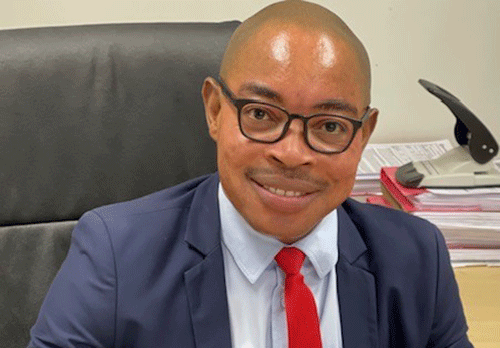Natangwe Sheehama
The upcoming budget 2022-23 should focus on protecting and driving the recovery of lives and livelihoods of Namibians, rebuilding resilience of the economy and catalysing socio-economic reforms.
Namibia needs a new inclusive and equitable economic growth model. We need to think local, tapping into the dynamic, youthful and flexible basics of the workforce. Connected to this, national and government must think creatively about how the informal and formal sectors could join forces, or complement one another, to bring about more equitable development. The government has been supportive but should be more proactive to make available interest-free loans, greater subsidies, and a reduction in tax structures. These timely amendments will speed up the recovery of losses and help the industry bounce back. In addition, the budget 2022-23 should catalyse structural reforms to boost the nation’s competitiveness, apart from ensuring greater sustainability and inclusiveness in its development agenda.
Furthermore, budget 2022-23 must focus on green hydrogen as a key energy resource. The biggest challenges facing Namibia are to develop and demonstrate green hydrogen technologies which are technically and economically viable and cost-competitive, and to create a robust supply chain and delivery mechanism for these technologies. Leveraging Namibia’s significant renewable energy potential to position Namibia as a top producer and potential exporter of green hydrogen should be a priority. An increase in investment in the sector will ultimately lead to better development and more jobs. It is also crucial for the government to support the sector to enable to promote hydrogen economy. Green hydrogen is a new but reliable technology for reducing carbon emissions in areas where electrification is ineffective. The growth of green energy is predicted to be among the fastest of any aspect of the energy revolution, generating specialised opportunities for businesses and investors.
The budget can include sustainable schemes to promote tourism in the upcoming budget. I further expect the government to focus on tweaking norms under the different tourism infrastructure development schemes which will enable different states to utilise these funds effectively for developing health and safety infrastructure to minimise the transmission of the virus, particularly at famous and crowded tourist destinations. My expectations from the budget for the hospitality sector are seeking lower taxes, better infrastructure, and lucrative loan interest-free loan options. The hospitality sector in Namibia has been the worst hit industry and has incurred heavy losses, which makes it imperative for us to look for relief in the national budget 2022-23.
The Namibian hospitality sector plays an important role in the revival of the post-pandemic economy and hence needs special attention in the upcoming budget of 2022-23. It would be great if the government provides special incentives to corporates to conduct their meetings and conferences in Namibia, rather than a foreign country. This will help develop domestic tourism, generate employment and discourage corporates to travel abroad for meetings. In a nutshell, the aim should be to encourage people and investors to spend within the country. This alone will lead to a quick revival of the industry and boost domestic operations.
Budget 2022-23 must also focus on efforts to help the vulnerable and disadvantaged segments of society, women and the disabled to ensure no one is left behind in the nation’s developmental and recovery agenda. The budget should serve as a catalyst towards the implementation of the NDPs and HPPs that will drive economic growth, inclusiveness and sustainability in the medium term, based on Vision 2030. In formulating the public expenditure strategy for budget 2022-23 minister Iipumbu Wendelinus Shiimi should consider providing for the immediate needs in overcoming the Covid-19 crisis, the fiscal constraints arising from the reduction in government revenue and increase in government debt and a catalyst in driving structural reforms.
Furthermore, I expect budget 2022-23 to focus on rebuilding the resilience of the nation’s public health system to face crises by enhancing its capacity and quality, strengthening human capital in public healthcare and fostering closer partnerships between public and private sector health providers. Budget 2022-23 should also focus on enhancing digital and technological infrastructure as a core element for the continuity of the country’s economic and social system in the future.
From an education perspective, digital infrastructure and applications also need to be upgraded to enable the education system to adjust towards supporting online education. For the business sector, digital infrastructure and applications would also play an important role in ensuring economic sectors remained operational and productive. This will expose the need for the nation to transition to industrial sectors with a higher level of productivity based on automated technology and higher skills. Hence, it will accelerate the transition towards Fourth Industrial Revolution and digital transformation, raising human capital capabilities through up skilling and reskilling programmes based on the needs of the labour market.
To this end, the budget 2022-23 should ensure that reform measures are implemented, focusing on the attainment of Vision 2030. Fostering unity among diverse populations and creating a vision for a common future that pivots on the acceptance of difference and animation of societies with a view to harnessing the strengths that are inherent in diverse societies. Responding to the needs of vulnerable groups, such as the poor and marginalised, the people with disabilities and youth should be a central feature of inclusive governance.
Promote social inclusion that highlights how meaningful social inclusion can occur and be presented as inspiration and to gain a better understanding of practical actions that can promote social inclusion.



